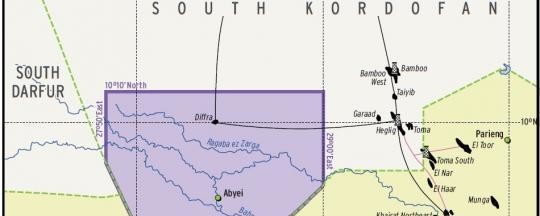Traders in the common market in Amiet area in the disputed territory of Abyei between Sudan and South Sudan prefer barter trade instead of transaction involving the use of South Sudanese Pound, according to authorities and local residents.
Speaking to Radio Tamazuj on Saturday, Chol Ajiing, a native of Abyei area, said: “Things are getting difficult these days and the problem is a dollar, which traders are using for exchange. Traders are bringing goods and you know very well when they bring goods, they need to buy dollars but these days dollars is rising steadily like nothing”.
“So, the traders are finding it hard and they are suggesting that instead of losing, they better use barter trade. If someone from South Sudan needs grains, what he needs is to give one cow, one goat or something else whose value could be evaluated in Sudanese pound and be given what he wants after the value is determined,” he added.
Nyuol Paguot, one of the paramount chiefs of Abyei, blamed the rise in prices of consumer goods to lack of dollars and war in South Sudan, saying it affected many families.
“As chiefs, there is nothing we can do about this situation. This situation is brought by war and this has affected many families. Now if you have your cow, your goat and want to sell, the money will not be enough to buy two bags of grain and this is a big problem for someone with a big family. Three or four bags are not enough, they do not take time, after one month they are finished,” he said.
The traditional leader further said the issue of barter trade should be left to the buyer and seller to decide, saying all they are encouraging is the availability of goods and services in the market.
“As chiefs, we are not telling them (sellers and buyers) what to do, whether to refuse South Sudanese, Sudanese pounds or accept. What we are encouraging is that goods and services should be available for people to obtain them, especially those who can afford. This is what is important,” he said.




